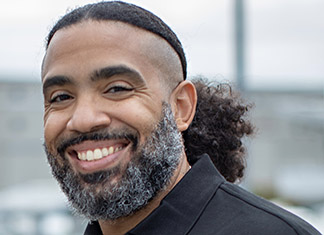
By LeRoy Horton, DDS
For all of us, oral health is an important – yet often neglected – component of our overall health. In fact, oral health is linked to many of the most common health concerns among the Black community, including heart disease, stroke, obesity and diabetes.
Unfortunately, dental care remains underutilized by many, resulting in disproportionate tooth loss, periodontal disease, and tooth decay which is nearly twice as prevalent with Black adults than with those who are White. Among our children, there is even greater disparity.
As with most inequities, there are many reasons for the disproportionate statistics including education, employment and economic factors. All precipitated by a continued historical disenfranchisement from access and opportunities in all facets of life. But perhaps the most obvious reasons for this specific issues is the lack of Black representation within the dental profession itself, and the distrust which comes from that lack of representation. As such, in order to see a Black dentist, many have to travel outside their geographic area – resulting in less frequent dental exams and delayed treatments – or they only seek care when pain is present. None of which results in a great experience, and which can contribute to a cycle of poor oral health.
Currently, less than four percent of dentists in this country are Black – a number which is only slightly higher for dental assistants and hygienists. It’s estimated that to bring the share of dentists into parity with their share of the U.S. population would require nearly 20,000 additional Black dentists. A daunting number indeed.
To effectively address the racial inequities of dental care and increase the number of Black dentists, assistants and hygienists, we must begin by identifying ways to introduce Black youth to dental careers.
Removing Barriers to Education
Within the community we need to celebrate academic performance of young Black students, offer more mentorship, and do a better job at equipping STEM (Science, Technology, Engineering & Mathematics) studies at schools in Black communities to remove the unintended education gap which deters so many Black students – particularly boys – from considering a dental health career.
Dental schools also need to establish more scholarships for Black students, set clear institutional goals, and issue progress reports in the recruitment and graduation of Black students, beginning with holding a percentage of spots each year dedicated to qualified Black dental school students.
Reflecting Diversity in Dental School Leadership
With so few Black dentists, young Black men and women lack real-life dental role models and mentors for guidance and encouragement which their white counterparts have in droves.
As with any profession, workplace or academic environment, it’s critical for our dental schools to mirror their community’s values and diversity – including faculty and administrators who reflect the students they serve, and who have firsthand understanding of their students’ struggles and values. Without a critical mass of Black professionals currently working in the field – and no substantial pipeline for dental school faculty and administrative positions – this will require a multi-year plan to actively increase the numbers, and should not be delayed.
To do this, there also needs to be a culture shift within the profession. The current and predominant ideology in programs across the country seems to be driven by historical networking and legacy. Both of which are difficult to penetrate from the outside. Many who seek a more inclusive change of the status quo feel that student and faculty position mandates would be a way to secure a foothold in the profession. There is a wealth of talent within the Black dental community as well as the pre-health student population. A program must make a decision to actively recruit and retain this talent, as a matter of policy, if there is a true desire for it to translate into improved patient outcomes.
Showing Up in our Community
Given this extraordinary underrepresentation of Black dentists and other dental professionals, it’s critical for those of us working in the profession to do all we can to make sure we are seen, we are accessible, and we are active.
By mentoring youth, by staying close and grounded to community needs, and by volunteering for programs providing dental care to communities with limited access or that cannot afford care – Black professionals, and all dental health organizations, have an important role to play.
The University of Washington School of Dentistry has renewed its commitment to expand the racial and ethnic diversity of students, and has hired an Associate Dean for Equity, Diversity, and Inclusion. Dr. Doug Jackson, the new dean, previously served as Associate Dean for Educational Partnerships and Diversity at the school, and most recently as the Director of the Center for Diversity and Health Equity at Seattle Children’s Hospital. Although his legacy is one of intense dedication to this work, one person alone is limited in the change they can affect unless the institution its self has a top down commitment to improve educational, professional, and patient outcomes.
While the American Dental Association reports some promising improvement in the number of BIPOC dentists in recent years, a Health Policy Institute study indicates the percentage of practicing Black dentists appears to be decreasing, signaling that much work remains in order to introduce more people of color to the dental profession – not just for the sake of having more Black dental professionals, but because greater diversity in the dental profession will help put an end to oral health disparities and result in better care for the Black community.
LeRoy Horton, DDS, is an affiliate instructor at UW School of Dentistry and a Delta Dental member dentist. Dr. Horton has received numerous awards in recognition to his work with underserved communities.



